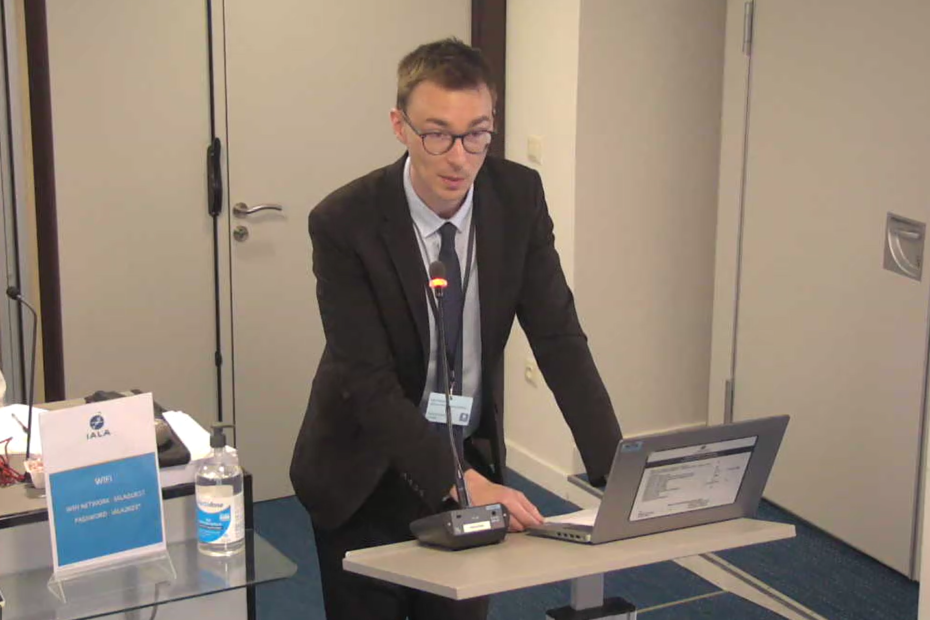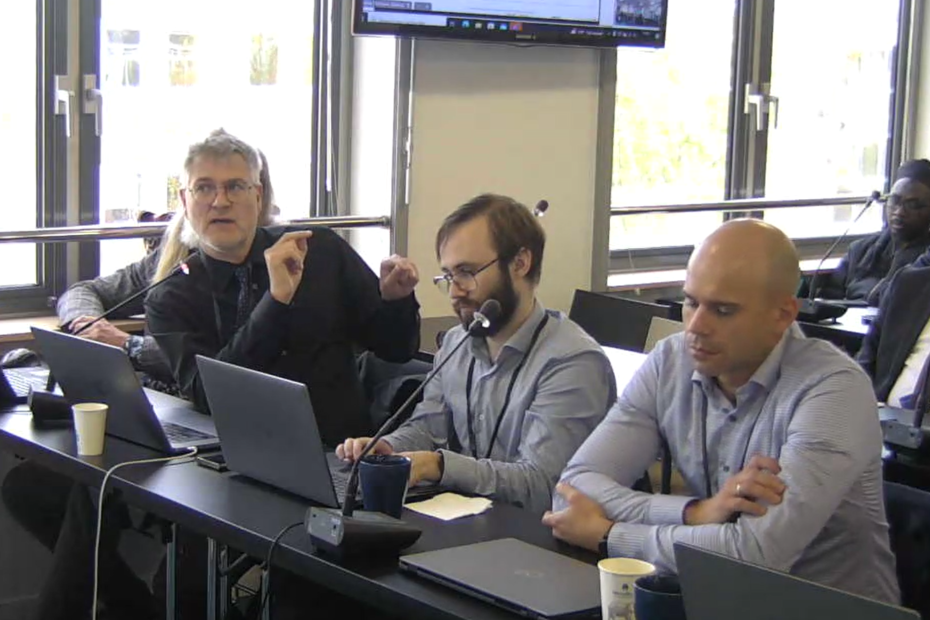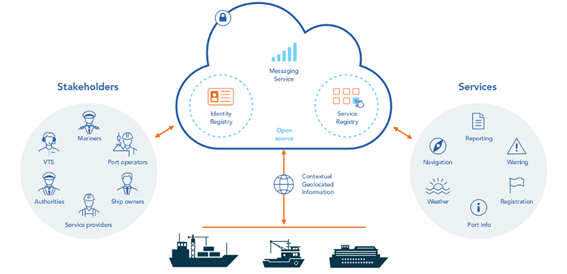Maritime Connectivity Platform
A decentralised platform facilitating secure and reliable information exchange
within the maritime domain and beyond
NEWS
Harmonised delivery of S-100 data facilitated by MCP Showcased at IALA DTEC 3
During the session of the IALA DTEC 3, the MMS demonstration underscored the system’s advancements in security and efficiency in maritime connectivity.
Julius Moeller from AMSA, Christopher Saarnak from DMA and Thomas Christensen from AIVeNautics led the session, showcasing harmonised solutions for distributing navigational warnings within the e-navigation framework. The demonstration emphasized real-time data exchange and the implementation of a public key infrastructure (PKI) to ensure secure communications among maritime entities.
Key features included the integration of the IHO’s S-124 product specification for standardized navigational warning datasets and a prototype user interface, NavUI, which allows users to visualize warnings on digital charts, enhancing situational awareness. The MMS is designed to be carrier agnostic, allowing flexibility to use various communication methods, including standard internet and non-IP options like VDES.
Live Navigational warning data from Australia, Korea, Denmark and Canada was demonstrated.
The event highlighted the collaborative efforts among various organizations under the umbrella of the Open Digital Incubator, to modernize maritime services, paving the way for safer and more efficient navigation at sea.
For more detailed information, please refer to the link below; MMS Demonstration on IALA DTEC 3
IALA Council Approves Guideline on Provision of MCP Identities
The 80th Council of the International Association of Marine Aids to Navigation and Lighthouse Authorities (IALA), held from June 17th to 21st, 2024, approved the guideline on the provision of MCP identities.
The IALA guideline G1183, defines requirements for secure identities through the Maritime Identity Registry (MIR) of the MCP, targeting organizations planning to become MCP Identity Service Providers and those using MIR certificates. This aligns with IALA R1019’s recommendation on maritime services in e-navigation.
Axel Hahn, from the German Aerospace Agency (DLR) the Secretary General of MCC, highlighted MCP’s secure communications and intelligent port communications.
The guideline is a milestone and is setting the stage for future maritime connectivity advancements.
The MCC celebrates this approval and looks forward to the platform’s continued growth and development.


The MCP

The information exchanged can be almost of any nature, ranging from private confidential information between a vessel and the shore office of the shipowner, to public information provided by authorities, such as the provision of navigational warnings.
– Endorsing organisations to be MCP service providers